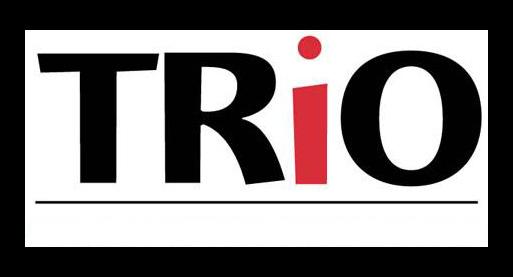About TRIO
 TRIO is a set of federally-funded college opportunity programs that motivate and support students from disadvantaged backgrounds in their pursuit of a college degree. Over 850,000 low-income, first-generation students and students with disabilities — from sixth grade through college graduation — are served by more than 2,800 programs nationally. TRIO programs provide academic tutoring, personal counseling, mentoring, financial guidance, and other supports necessary for educational access and retention. TRIO programs provide direct support services for students and relevant training for directors and staff.
TRIO is a set of federally-funded college opportunity programs that motivate and support students from disadvantaged backgrounds in their pursuit of a college degree. Over 850,000 low-income, first-generation students and students with disabilities — from sixth grade through college graduation — are served by more than 2,800 programs nationally. TRIO programs provide academic tutoring, personal counseling, mentoring, financial guidance, and other supports necessary for educational access and retention. TRIO programs provide direct support services for students and relevant training for directors and staff.
The TRIO programs were the first national college access and retention programs to address the serious social and cultural barriers to education in America. (Previously, only college financing had been on policymakers’ radar.) TRIO began as part of President Lyndon B. Johnson’s War on Poverty. The Educational Opportunity Act of 1964 established an experimental program known as Upward Bound. Then, in 1965, the Higher Education Act created Talent Search. Finally, another program, Special Services for Disadvantaged Students (later known as Student Support Services), was launched in 1968. Together, this “trio” of federally-funded programs encouraged access to higher education for low-income students. By 1998, the TRIO programs had become a vital pipeline to opportunity, serving traditional students, displaced workers, and veterans. The original three programs had grown to eight, adding Educational Opportunity Centers in 1972, Training Program for Federal TRIO programs in 1976, the Ronald E. McNair Post-baccalaureate Achievement Program in 1986, Upward Bound Math/Science in 1990, and the TRIO Dissemination Partnership in 1998.






